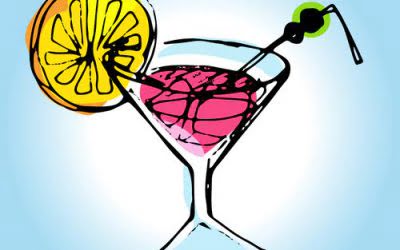Withdrawal symptoms during the middle stage of alcoholism commonly involve anxiety, confusion, tremors, increased heart rate, nausea, vomiting, and insomnia. These signs reflect a significant reliance on alcohol and may require professional intervention. Detoxification is often the first step in the treatment process for alcoholism. Medically monitored detox programs offer a safe and supportive environment for beginning sobriety. These programs offer continuous supervision and medication to mitigate withdrawal symptoms and prevent complications.
The Right Treatment Facility
- By recognizing the symptoms early and seeking help, individuals can prevent the progression of alcohol use disorder and improve their chances of recovery.
- The middle alcoholic stage, often deemed a serious phase of alcohol use disorder, marks a significant turning point in an individual’s relationship with alcohol.
- A low level of alcohol intoxication causes mild symptoms, while severe intoxication, or alcohol poisoning, can be life threatening.
- Alcohol intoxication is described as a mental and behavioural disorder by the International Classification of Diseases.
With appropriate support and treatment, recovery remains possible even at this advanced stage. Cognitive decline, affecting memory and judgment, is also prevalent. The significant lifestyle disruptions caused by end-stage alcoholism stages of intoxication include financial distress, job losses, and damaged relationships.
Contents

7 lifestyle changes that can lead to a big difference in your blood pressure. When paramedics arrive, be ready to tell them what you can about the person. You might need to describe how much they drank or what they’ve been doing since you called. Start your recovery journey with peace of mind, knowing your care is covered.
- Family conflicts and stress are common triggers for developing a drinking problem.
- Physically, the effects of alcohol at this stage are far more pronounced.
- Your body functions will slow so much that you will fall into a coma, putting you at risk of death.
- Despite how severe their condition might be, the person may not fully comprehend the danger they are in due to their mental and physical impairment.
Our mental health services

Cognitive-behavioral therapies, behavioral therapies, and support groups such as Alcoholics Anonymous are effective treatment options for early-stage alcoholism. Early intervention is essential to prevent the condition from worsening. Acknowledging that help is available for anyone dealing with alcohol use disorder is essential for early intervention and recovery. Understanding the various stages of alcoholism can aid in recognizing when to seek help, making http://nailologyandmagichair.com/canadian-opioid-use-disorder-guideline/ it possible to intervene before the condition worsens. Individuals struggling with alcohol addiction should speak to their GP as a first step.
- Strained relationships, poor job performance, and social withdrawal are significant consequences faced by individuals in this stage.
- Below are some of the primary symptoms of this condition, from mild intoxication to alcohol poisoning.
- However, even a mild disorder can escalate and lead to serious problems, so early treatment is important.
Is Drug Addiction Genetic? Understanding Genes & Dependency

BAC and blood sugar levels can both be checked with a simple blood or urine test. While you wait, make sure the intoxicated person remains upright and awake. If you believe someone is significantly intoxicated, the first thing to do is to remove any additional alcohol from their immediate surroundings so they can’t continue to drink. The person is more confident, friendly, impulsive, and has a shorter attention span. If you are concerned about someone with these symptoms, you should seek immediate medical attention.
The 3 Stages of Alcoholism
With an emphasis on personalized care, Mayflower Recovery guides individuals through their recovery journey and helps them achieve long-term sobriety. Mayflower Recovery provides a variety of services to assist individuals grappling with alcohol addiction. Their strategy focuses on personalized treatment plans and evidence-based care. The facility offers free insurance verification drug addiction treatment and addiction analysis, making it easier to access the help needed.
